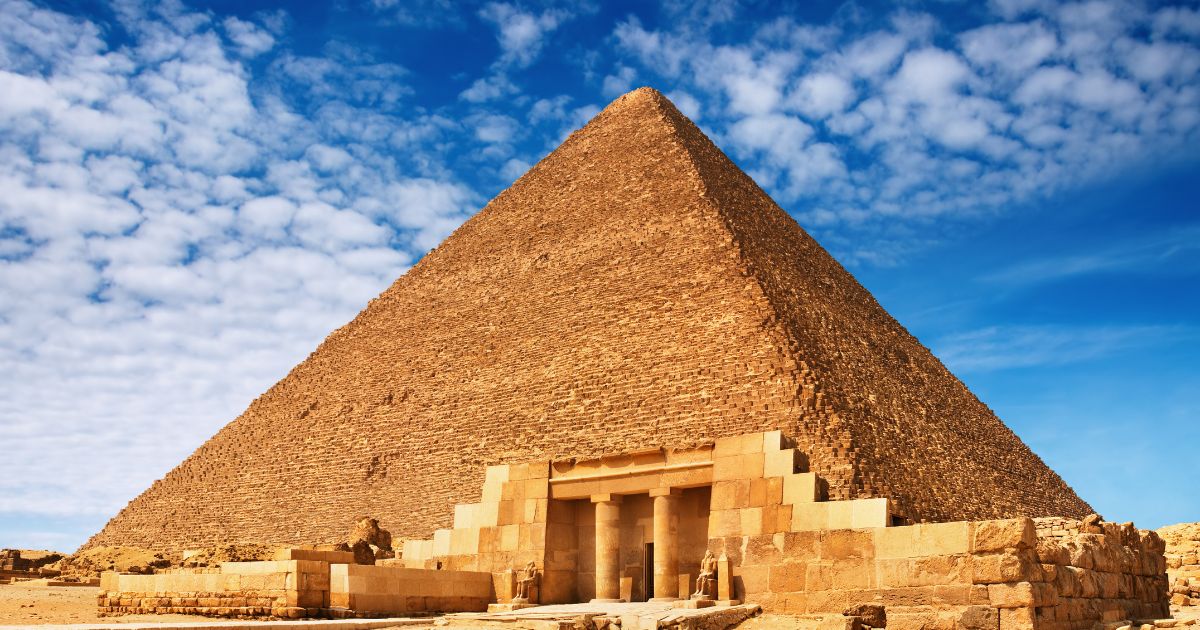Building your knowledge isn’t just about memorizing trivia—it’s about seeing connections, sparking curiosity, and training your brain to think in new ways. The correct set of general knowledge facts can do precisely that. They remind us how far humanity has come, from the achievements of ancient civilizations to the innovations of modern science and technology, and they open doors to deeper conversations about history, geography, literature, and culture.
In this article, we’ll dive into 11 must-know facts that not only sharpen memory and boost brainpower but also make you a more engaging thinker and communicator. Whether you’re preparing for a quiz competition, improving your critical thinking skills, or love learning fascinating tidbits about the world, these insights will expand your perspective and fuel your passion for lifelong learning.
1. The Great Pyramid’s Shiny Shell
When it was completed around 2560 BC, the Great Pyramid of Giza wasn’t the rough, stepped structure we see today. Instead, it was covered in precisely cut Tura limestone casing stones that reflected sunlight so brilliantly the pyramid could be seen from miles away. Over time, many of these polished stones were removed or weathered, exposing the inner core blocks. Archeologists believe the gleaming exterior may have been part of a deliberately awe-inspiring display, symbolizing divine power and connecting the pharaoh to the sun god Ra.

2. Oxford University Predates the Aztec Empire
The University of Oxford began teaching scholars as early as 1096 AD, making it one of the oldest continuously operating universities. Meanwhile, the Aztec Empire didn’t emerge in what is now central Mexico until around 1428 AD. That means students were roaming Oxford’s hallowed halls for over three centuries before the Aztecs established their mighty civilization—an eye-opening reminder of how history unfolds differently across the globe.

3. Wombat Poop Is Cube-Shaped
Wombats, the stout marsupials native to Australia, produce cube-shaped feces. Scientists attribute this peculiar shape to the unique elasticity of the wombat intestine, which molds the waste into little blocks as it dries. These cubes don’t roll away, helping wombats mark their territory more effectively by piling their droppings on rocks and logs. It’s a curious adaptation that highlights the strange wonders of evolutionary design.
4. Earth’s Rotation Is Gradually Slowing
Our planet’s rotation is slowing by about 1.8 milliseconds per century due to tidal friction caused by gravitational interactions with the Moon. As a result, days are incrementally lengthening over geological timescales. To keep Coordinated Universal Time (UTC) aligned with solar time, scientists occasionally add leap seconds. It’s a subtle reminder that the celestial mechanics governing our world are constantly in motion.
5. Sharks Predate Trees
Sharks have been prowling Earth’s oceans for approximately 400 million years, while the earliest trees emerged about 380 million years ago, during the late Devonian period. This means sharks swam in primeval seas long before lush forests covered the land. Their survival through multiple mass extinctions showcases their incredible adaptability and cements their status as ancient oceanic apex predators.
6. Cleopatra Lived Closer in Time to the Moon Landing Than the Pyramids
Cleopatra VII ruled Egypt around 30 BC, roughly 2,000 years before humans first stepped on the Moon in 1969 AD. In contrast, the Great Pyramid of Giza was completed around 2560 BC—more than 2,500 years before Cleopatra’s reign. This mind-bending timeline shows how ancient civilizations could be staggeringly distant from one another.
7. Hot Water Can Freeze Faster Than Cold (Mpemba Effect)
The Mpemba effect refers to the counterintuitive observation that, under certain conditions, hotter water can freeze faster than cooler water. First noted by Tanzanian student Erasto Mpemba in the 1960s, scientists still debate the mechanisms—ranging from evaporation rates and convection currents to the behavior of supercooled water. While it’s not guaranteed in every situation, the phenomenon continues to intrigue researchers worldwide.
8. Humans Share About 50% of Their DNA With Bananas
Surprisingly, humans and bananas share roughly half of the identical DNA sequences. Of course, most of this genetic material governs basic cellular processes like metabolism and energy production—critical functions for both species. While we don’t look or behave like bananas, this shared genetic foundation highlights the deep evolutionary connections that unite all life on Earth.
9. Most Household Dust Is Dead Skin Cells
Amazingly, about 80% of the dust found in your home consists of shed human skin cells. The rest is a mix of fabric fibers, pollen, soil particles, and insect fragments. While it may sound gross, this constant shedding is a natural part of skin renewal. Regular cleaning helps keep dust levels down and indoor air quality healthier.
10. A Day on Venus Is Longer Than a Year
Venus has a slow retrograde rotation, taking about 243 Earth days to complete one spin on its axis. Yet it orbits the Sun in just about 225 Earth days. This strange dynamic means that a single day (from sunrise to sunrise) on Venus lasts longer than an entire Venusian year—an oddity that challenges our terrestrial intuition.
11. Koalas Have Unique Fingerprints
Koalas possess fingerprints that are remarkably similar to human prints, with loops and whorls that can confuse crime scene investigators. The patterns even exhibit characteristics such as ridges and minutiae points, which are also found in people. This convergence—likely an adaptation for gripping branches and food—demonstrates how different species can evolve parallel solutions to similar environmental challenges.
Conclusion
From ancient pyramids to peculiar animal traits, these 11 general knowledge facts showcase the astonishing diversity and complexity of our world. Each nugget of information not only enriches your understanding but also sparks new lines of inquiry. Keep exploring, keep questioning, and let your curiosity guide you toward ever more surprising discoveries. What fact surprised you the most? Share your favorite tidbit with friends and keep the conversation alive.
Learn More: 12 Fascinating General Knowledge Facts from History, Science & Culture







